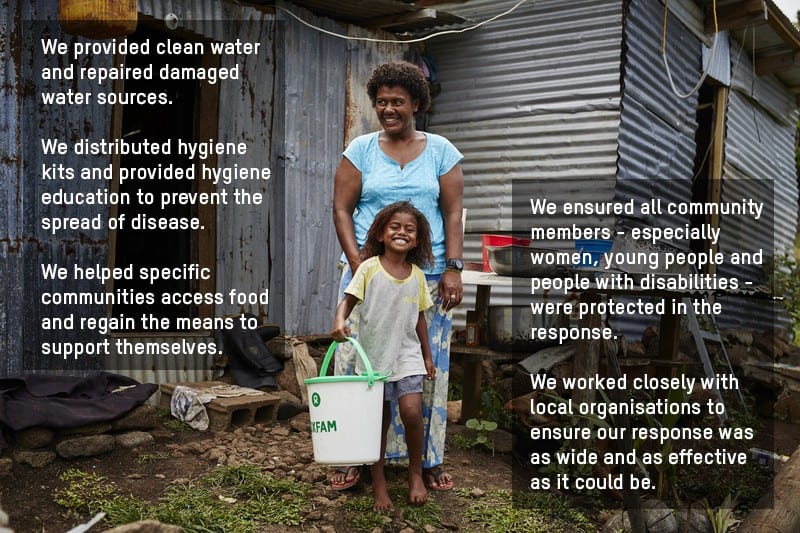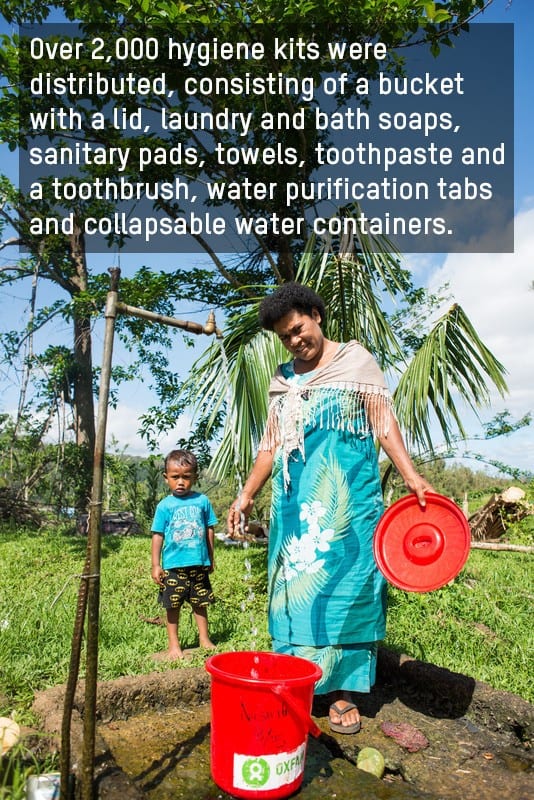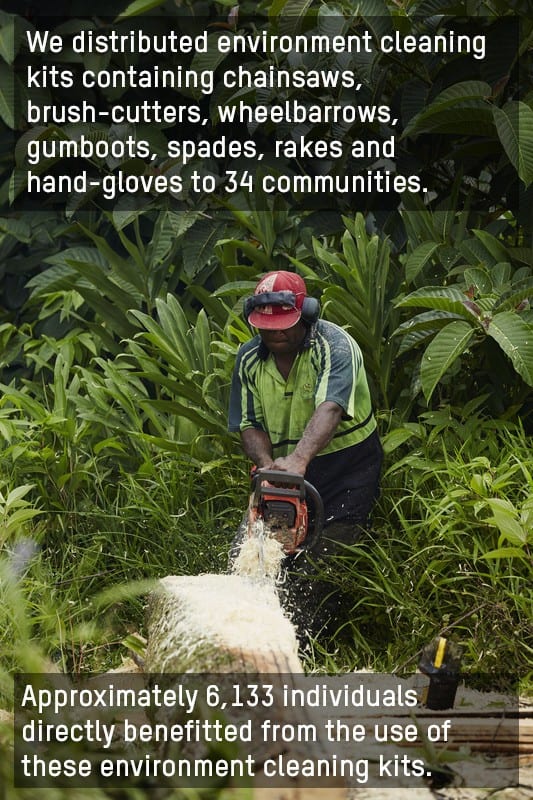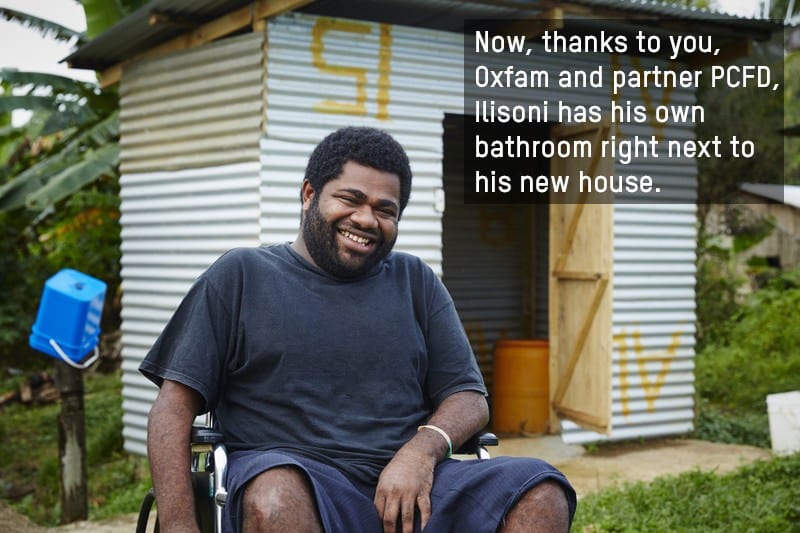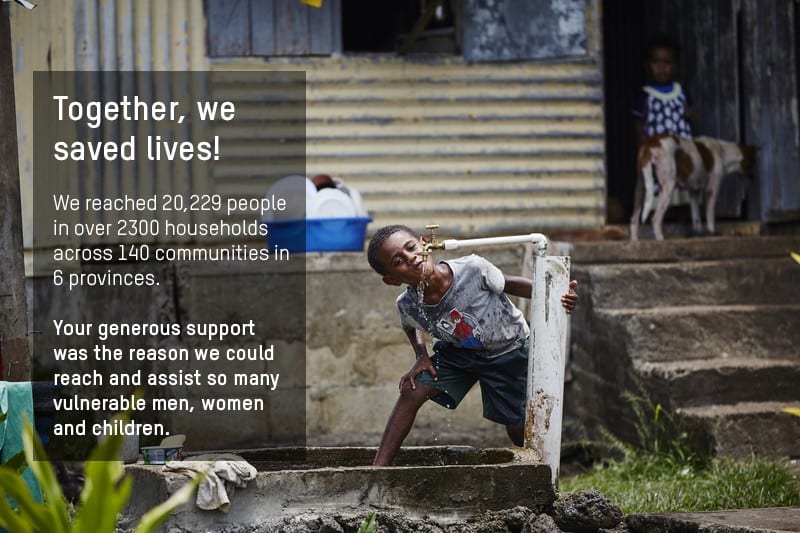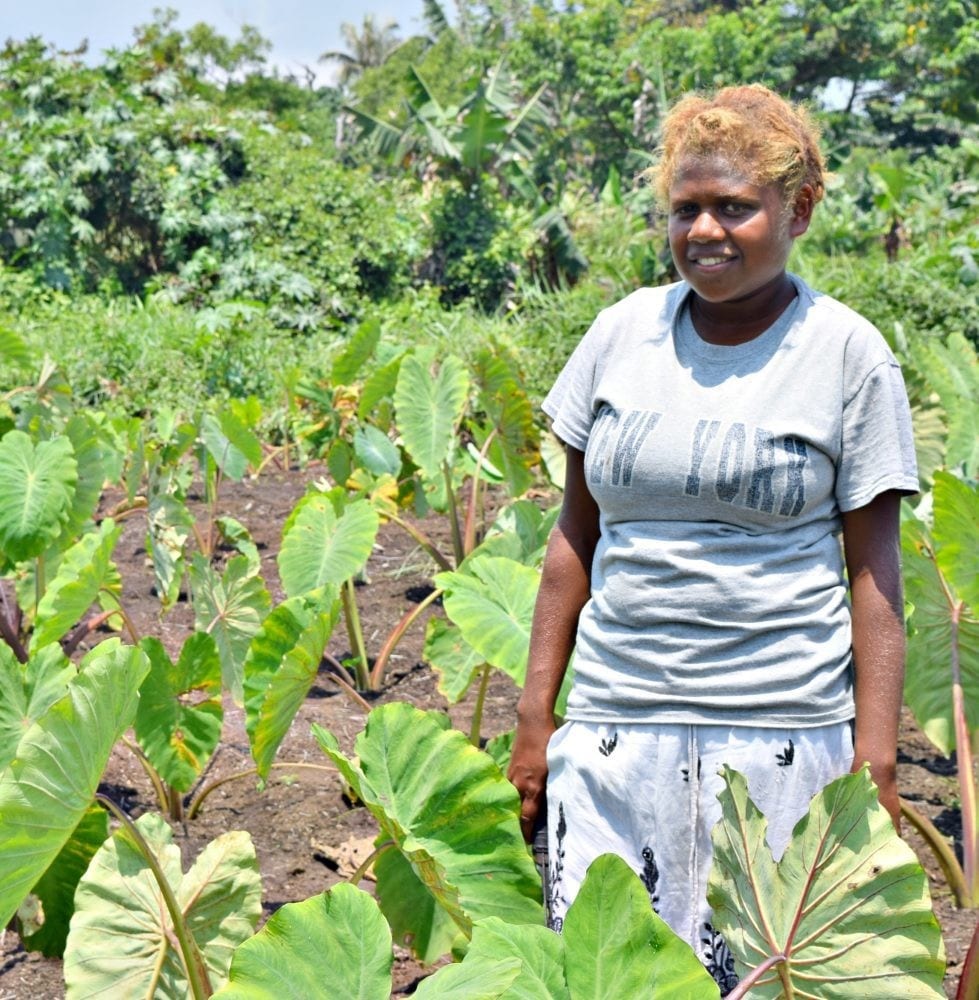
It’s not uncommon for children in Vanuatu to stop attending school at 10 years old – there are not enough secondary school places due to government budget constraints, and many families can’t afford the school fees. At whatever age these young people leave school, their job prospects are often very limited.
Oxfam has been partnering with Rural Training Centres (RTCs) and the Farm Support Association (FSA) in Vanuatu to give young people a chance at learning a variety of skills to make them employable, equip them to start their own businesses, and give them a good shot at earning an income.
Meet Shanine Natiang. She’s from Tanna, an island in southern Vanuatu. Her life was turned around in 2013 when she applied for the Vanuatu Young Farmers Development Course in the Napil Rural Training Centre.
Shanine’s primary level education was cut short when she fell extremely ill for several weeks. She eventually recovered enough to return to school, but decided against going back and to help her parents at home instead.
“I fell ill for some weeks so I did not want to go back to school after the illness had left me, I felt that I wasn’t learning much at school and it was a waste of time, so I chose to stay at home and help look after my younger siblings”.
In 2013, after some encouragement from her father, she applied for the Vanuatu Young Farmers Development Course and was accepted. She received training in horticulture and livestock management and learned the most effective way to produce sustainable and fruitful crops in her local environment. During the course she also gained valuable gardening skills in crop conservation, garden restoration and maintenance, and landscape garden design.
Poultry farming on Tanna is an increasingly popular small-scale business, and a lot of Shanine’s training involved learning how to farm poultry effectively to get the best results. She put her skills to use and started her own poultry farming business to earn an income to support herself and her family. After her first year of training she received 40 chicks, chicken feed, wire mesh and two tarpaulins from the Farm Support Association (FSA). She maintained her poultry farm and made VT60,000 by selling each rooster for VT1,500.
Shanine’s story is a success. She learned how to effectively maintain a sustainable business, and the training programme utilised the resources available in Shanine’s environment, creating a business that works in her local context.
Shanine is now able to support herself and her family, whilst still saving some money.
“Not all of us can be smart in primary and secondary schools. I may not be good at formal school but I am good in farming and gardening. I can now combine what I learned as I grew up with what I’m learning in the trainings. I feel like I now have a positive future.”
“I am young but I am thinking more maturely than my friends. While some kids my age are just hanging in the gardens, I’m learning how to make money from it.”
Shanine has set her goal to become one of the successful female poultry farmers in her village. Now in her last year of training, other young people in Shanine’s village are seeing her tremendous progress and they are eager to join the program. 32 other young women and men are enrolled alongside Shanine at the Napil RTC, and from 2017, Vaiduhu RTC on Malo Island will also begin offering the Young Farmers Development Course.
“I can’t wait to graduate. FSA and the Napil RTC has supported me a lot, I will use the resources and skills I’ve gained to build a good future for myself and my family. I am on my way to being a successful farmer and have no doubts that I will be one of the best on Tanna”.
Since Cyclone Pam in 2015, Oxfam has been helping to rebuild classrooms and dormitories in RTCs on Tanna, Epi and Malekula Islands. Many families in Vanuatu struggle to keep their children in school as it’s too expensive, but many RTCs in Vanuatu accept in kind payment with kava, pigs or cows rather than regular fees so more families can afford it. Through the courses at the RTCs in Vanuatu, students can learn practical skills such as health and sanitation, home economics, small business management, legal rights, agriculture, mechanics and carpentry – all skills that can ensure a better, bright future for these young people.





